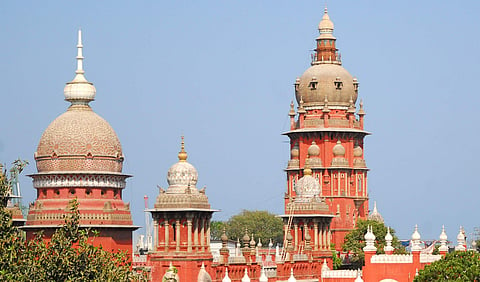

CHENNAI: A PIL petition has been filed in Madras High Court to restrain Union Ministry of Petroleum and Natural Gas and Director-General of Hydro Carbons at Noida, from implementing the hydrocarbon exploration and production of methane projects in Cauvery delta areas and its river basins in the State.
A division bench of Justices M Sathyanarayanan and N Seshasayee, before which the petition from A Marx, an advocate from Mannargudi, came up for hearing on Friday, ordered notice to the authorities concerned returnable by January 7.
Petitioner submitted that farmers in Cauvery delta, the `granary' of Tamil Nadu, are presently facing the danger of being deprived of their livelihood by the implementation of the "ill-advised projects." Despite Tamil Nadu's government's stand against the projects and its decision not to give clearance for projects to produce Cold Bed Methane (CBM), based on recommendations of expert technical committee, Union Environment Ministry had allotted two hydrocarbon blocks in the State as part of Open Acreage Licensing Policy to Vedanta, with first block measuring 1,794 sq. km in Villupuram and Puducherry and the second block covering 2,754 sq km in Nagapattinam, Karaikal and in Bay of Bengal, in 2018.
Subsequently, the ministry granted Terms of Reference for drilling 341 off-shore and on-shore oil and gas exploration wells in and around Tamil Nadu, to a unit of Vedanta in the large tracts of lands in Cauvery delta. The main reason for choosing Cauvery river basin is the availability of water and sand. Alleging that hydraulic fracturing process would certainly destroy Cauvery river basin and consequently affect rice production and drinking water for millions of people, the petitioner said the dangers of hydrocarbon exploration resulted in public protest. Alleging that if the lands used to produce food are allowed for exploration and production of hydrocarbon, agricultural lands will shrink in the process which would eventually lead to denial of access to food and Right to livelihood guaranteed in the Constitution.